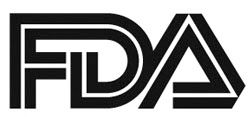FDA Approves Mitomycin Gel For Low-Grade Upper Tract Urothelial Cancer
The FDA has granted approval to mitomycin gel as treatment of adult patients with low grade upper track urothelial cancer.

The FDA has approved UGN-101 (mitomycin gel; Jelmyto) for the treatment of patients with low-grade upper tract urothelial cancer (LG UTUC).1
This represents the first nonsurgical treatment option for patients with LG UTUC.
“This is the first approval specifically for patients with low-grade UTUC and provides an option for some patients who may otherwise require a nephroureterectomy,” said Richard Pazdur, MD, director of the FDA’s Oncology Center of Excellence and acting director of the Office of Oncologic Diseases in the FDA’s Center for Drug Evaluation and Research, in a statement. “Due to substantial treatment challenges associated with the complex anatomy of the upper urinary tract, many patients need to be treated with radical surgery usually complete removal of the affected kidney, ureter and bladder cuff. Jelmyto gives patients, for the first time, an alternative treatment option for low-grade UTUC.”
Findings from the pivotal phase III OLYMPUS trial supported the approval for this mitomycin formulation. In the study, a total of 41 patients (58%) were reported as having a complete response (CR) at 3 months and 29 patients still showed responses at follow-up. At least one dose of maintenance therapy was administered to patients.
In terms of durability of response, 19 patients were still having a CR at 12 months. Documented recurrences were reported in 7 patients. The median response duration had not been reached (range 0-18.8+ months), at the time of data cutoff.
OLYMPUS is a prospective, open-label, single-arm study that explored the efficacy and safety of UGN-101 in the upper urinary system of patients with non-invasive LG UTUC (NCT02793128). UGN-101 is a prolonged release, reverse thermal gel formulation, administered through retrograde catheter, that contains mitomycin.2
Patients were treated once weekly 6 times with UGN-101 at 4 mg MMC per 1 mL of TC-3 gel with a maximum dose of 15 mL. Four to six weeks after the last instillation, patients went through a primary disease evaluation of ureteroscopy and wash cytology to determine if they had achieved a complete response (CR). Those who achieved a CR were able to continue receiving monthly instillations as maintenance therapy for up to 11 treatments.
Eligible patients had at least 1 measurable papillary tumor ≤15 mm and a biopsy from above the ureteropelvic junction that confirmed urothelial carcinoma. Bilateral LG UTUC was acceptable if at least 1 side met the inclusion criteria for the trial and the other kidney did not require treatment.
Anyone who had received Bacillus Calmette-Guerin treatment within 6 months of initiation, carcinoma in situ, untreated concurrent urothelial cancer in other locations, or a history of invasive urothelial carcinoma in the urinary tract or high-grade papillary urothelial carcinoma were not able to participate in the trial.
The primary end points were CR rate and adverse events (AEs) rate; secondary measures included durability of CR, partial response (PR) rate, and MMC levels in the plasma.
A total of 74 patients have been enrolled in the trial at sites across the United States and Israel.
The final analysis showed that 89% of patients maintained their response at 6 months and 84% at 12 months by Kaplain-Meier analysis. The estimated time to recurrence was about 13 months.
The most common treatment-emergent adverse events observed were ureteric stenosis (43.7%), urinary tract infection (32.4%), hematuria (31.0%), flank pain (29.6%), dysuria (21.1%), renal impairment (19.7%), and vomiting (19.7%). Most of these events were transient and were considered to be mild to moderate.
The most common grade 3 treatment-emergent adverse event was ureteric stenosis in 8.5% of patients. The FDA noted that such obstructions did not completely resolve in 51% of patients and transient or long-term stents may be required to relieve obstruction.
The FDA advised that women who are pregnant should not take UGN-101 as it could cause harm to a fetus or newborn baby, and patients with a glomerular filtration rate less than 30 ml/min should also avoid using mitomycin gel.
UGN-101 previously received orphan drug, fast track, and breakthrough therapy designations from the FDA for the treatment of patients with LG UTUC.
References
- FDA approves mitomycin for low-grade upper tract urothelial cancer [news release]. Silver Spring, Maryland: FDA; April 15, 2020. FDA website. https://bit.ly/2xxaVMu.
- UroGen Pharma Announces FDA Filing Acceptance and Priority Review of U.S. New Drug Application (NDA) for UGN-101 [press release]. New York, New York: UroGen Pharma Ltd.; December 19, 2019. https://bwnews.pr/2V4WKqT.